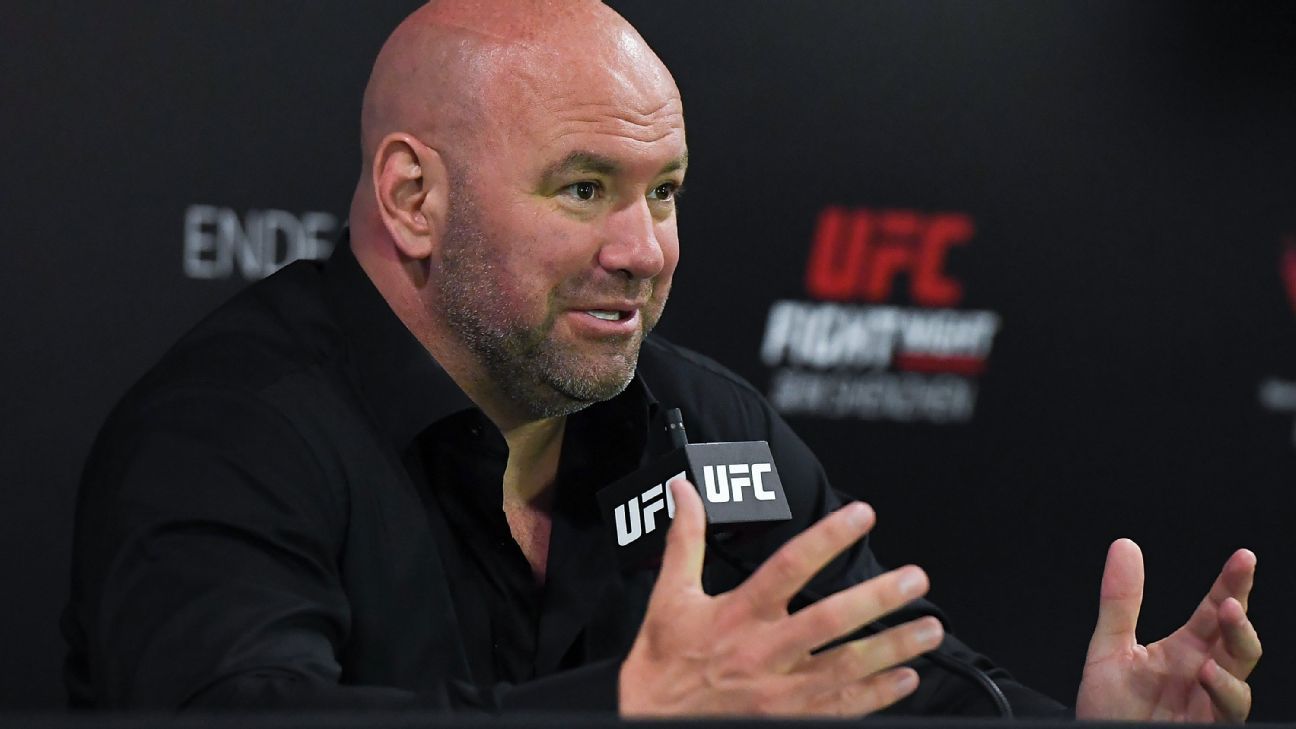The UFC wants to get involved in psychedelic drug research as a therapy for fighters’ brain health.
The promotion is in contact with Johns Hopkins University about its psychedelic studies to see if the drugs can be useful for fighters who deal with brain problems, UFC President Dana White told MMA Junkie on Wednesday.
“We’re diving into it,” said White.
UFC senior vice president of health and performance, Jeff Novitzky, told ESPN that the interest came from a segment of HBO’s “Real Sports” last month. Novitzky said White has given him a “guideline” to further examine psychedelic research and that he has been in contact with Johns Hopkins in recent weeks.
The UFC has been a major backer of a study on the brain of a professional athlete conducted by the Cleveland Clinic’s Lou Ruvo Brain Health Center, contributing another $ 1 million last week. Novitzky said the promotion could appear to be a benefactor for a psychedelic study with the added possibility of recruiting current or former UFC fighters to be part of the research.
“Dana said, ‘Hey, find out what this is about,'” said Novitzky. “To see if it helps with any traumatic brain injury, addiction, mental health problems. We want to be on board and we want to be the first.”
Johns Hopkins is the national leader in research on the therapeutic effects of psychedelics like psilocybin (mushrooms) and LSD. The Johns Hopkins Center for Psychedelic and Awareness Research obtained regulatory approval from the United States government in 2000 and produced more than 60 peer-reviewed research papers.
Currently, psilocybin and other psychedelics are classified by the United States government as illegal Class I drugs, defined as drugs with a high potential for abuse or drugs without medical use.
However, opinions about psychedelics are changing. Oregon legalized psilocybin in a vote last year.
“Our research has demonstrated therapeutic effects in people who suffer from a number of challenging conditions, including addiction (smoking, alcohol, other drugs of abuse), existential suffering caused by life-threatening illnesses and treatment-resistant depression,” says the Johns Hopkins Center to the Psychedelic & Consciousness Research website.
Former UFC flyweight fighter Ian McCall has worked with psilocybin and athletes and participated in a study with Johns Hopkins, he told ESPN’s Michael Rothstein last year. McCall said he has had discussions with the UFC.
“When you go to a cage, when you go to the ring and fight and even football, you are giving and receiving [post-traumatic stress syndrome] and nobody wants to talk about it, but that’s what’s going on, “said McCall.” Your trauma is stored in your tissue, so you’re giving and receiving PTSD while you’re there and that’s a big reason why I work on psychedelics, to try to fix exactly those things. We need to take a little better care of these athletes, just as we need to do with veterinarians ”.
Novitzky said he talked to athletes who experienced psychedelics like ayahuasca, and those who struggled with addiction or mental health said the drug has been extremely useful. The UFC executive said he is not sure when the promotion could do something in the psychedelic field, but that the desire is there.
“We want to do it the right way,” said Novitzky. “We want to get all government approvals if we are going to do something. We want to find out how we are going to recruit fighters. Unfortunately, it is not something that happens overnight. But Dana basically instructed me, ‘Hey, I want this to be examined. Bring me some potential paths that we can be involved in. ‘”
White said that, just as with the UFC’s participation in the brain health study, there is a desire to research more into potential therapies for fighters with brain problems. UFC veteran Spencer Fisher spoke about his health problems, including brain injuries, in an interview with MMAFighting.com published on Tuesday.
“He’s not the first and he definitely won’t be the last,” White said of Fisher. “This is a contact sport. Anyone has done that [when they were] younger – including me – is dealing with brain problems. It’s part of the show. “
